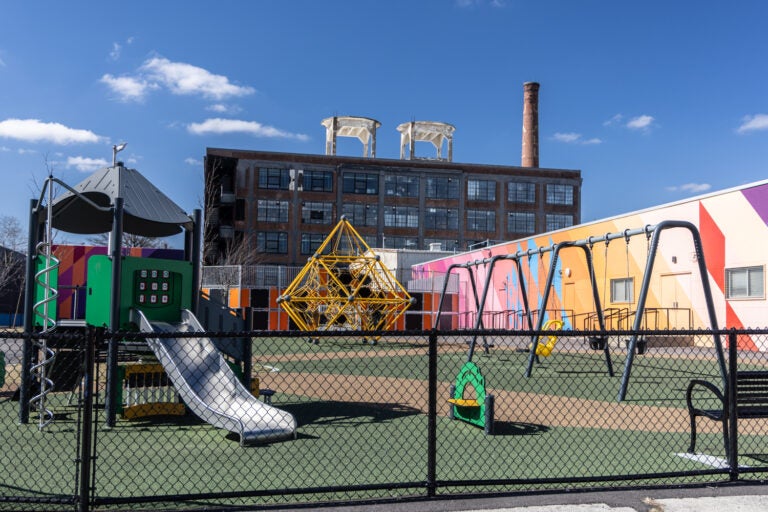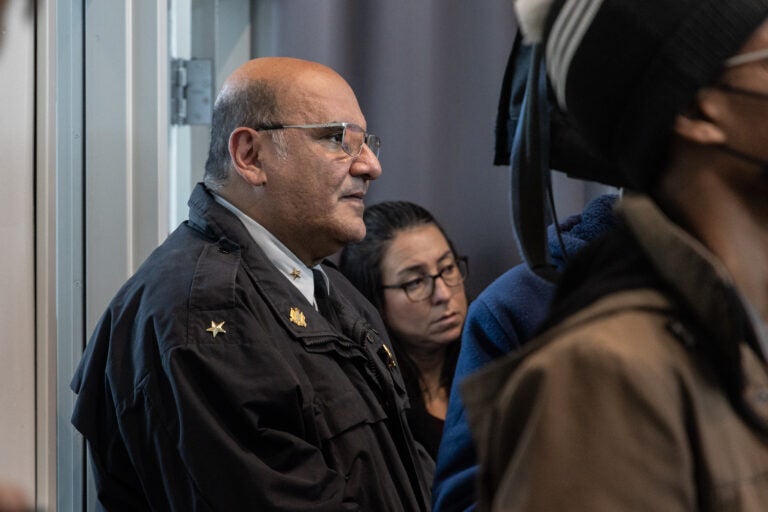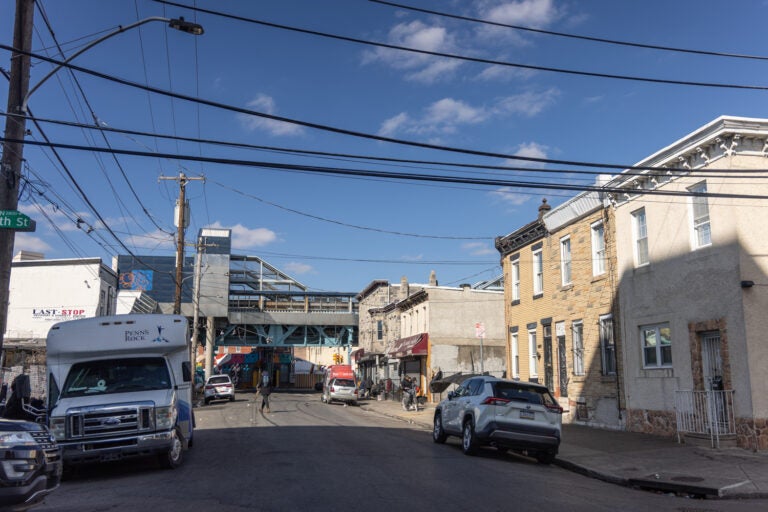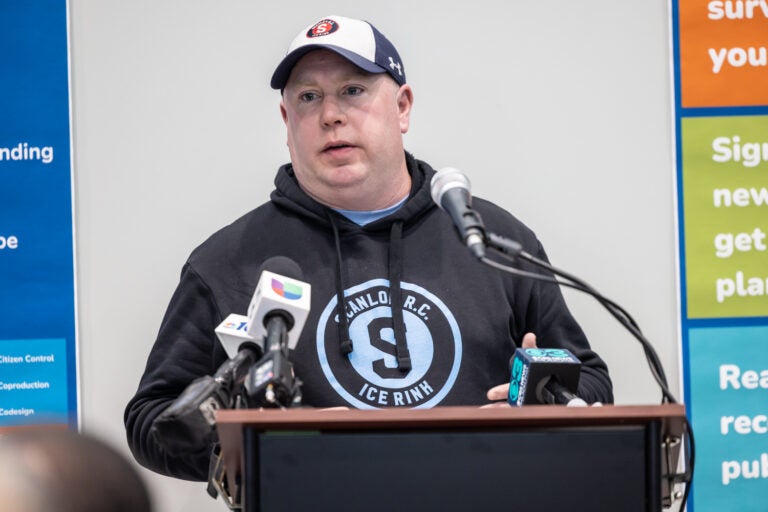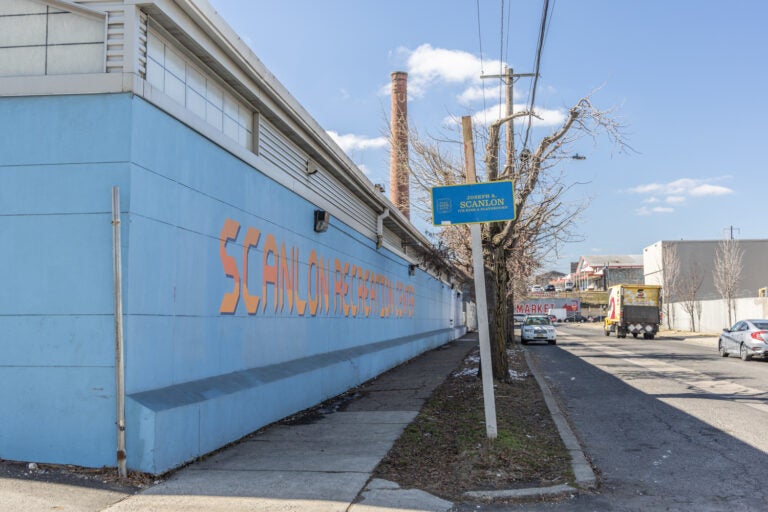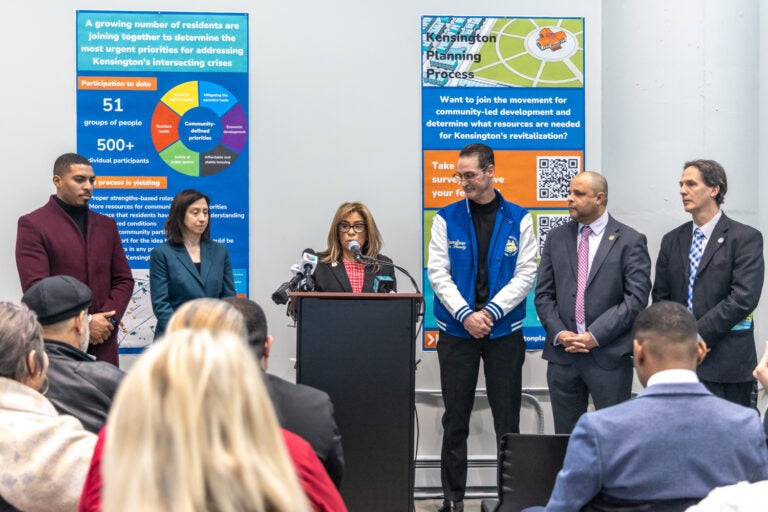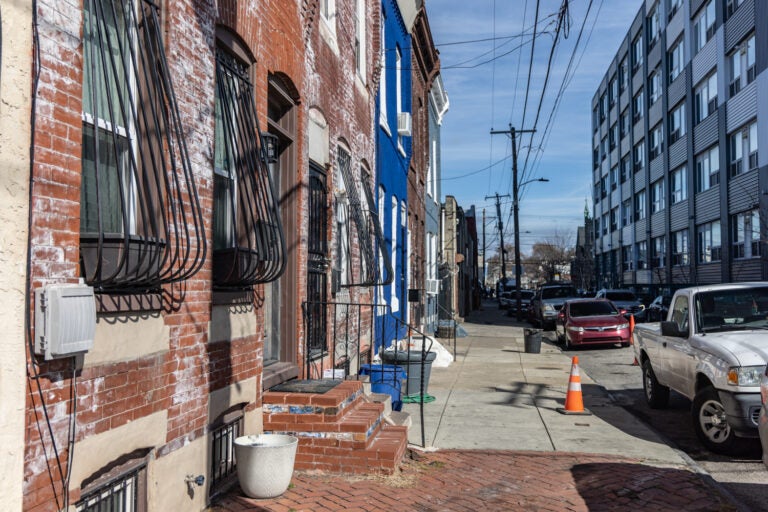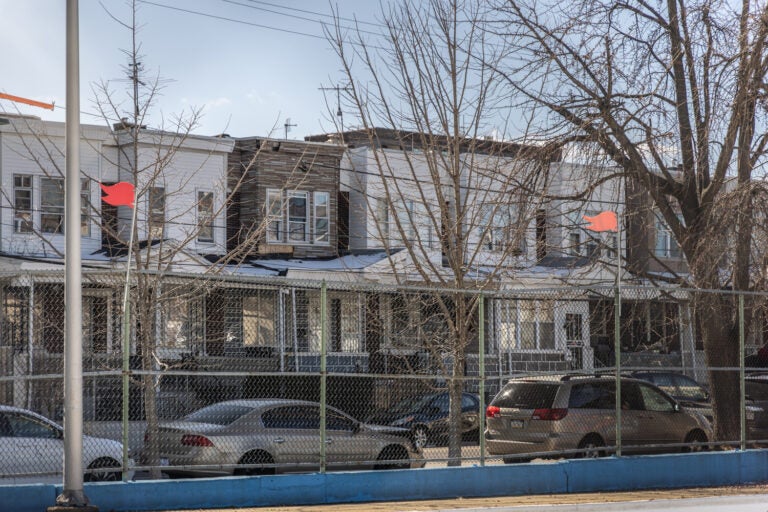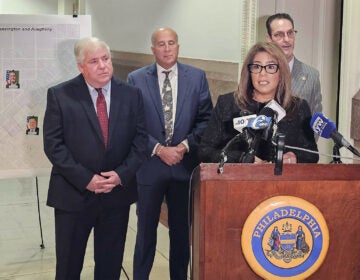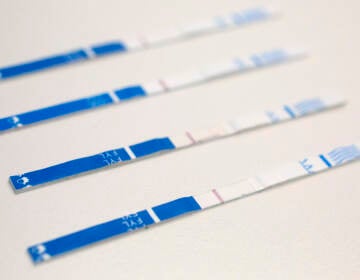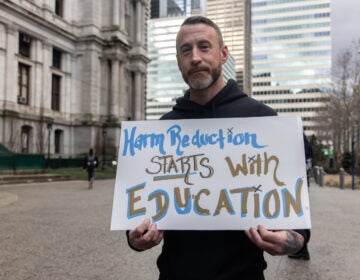Kensington stakeholders plan to use opioid settlement funds for the neighborhood’s housing issues
Community members met at the New Kensington Community Development Corporation to discuss using settlement funds toward home repairs, eviction and foreclosure prevention.
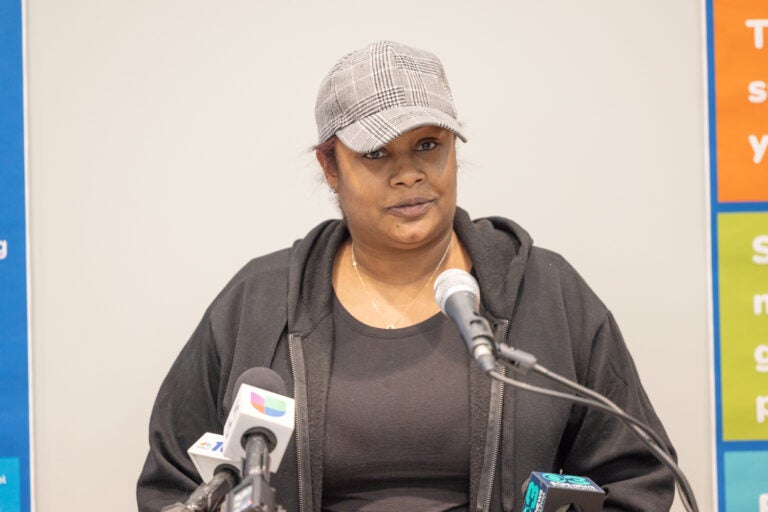
Naiya Nelson Brown, a resident who was given assistance stay in her home, encouraged anyone struggling to pay for housing reach out for assistance no matter the zip code. (Kimberly Paynter/WHYY)
From Philly and the Pa. suburbs to South Jersey and Delaware, what would you like WHYY News to cover? Let us know!
Members of the Kensington Planning Process on Wednesday announced long-term plans for using opioid settlement funds to prevent what they call the next “impending” crisis — housing issues and gentrification.
To date, Philadelphia has been awarded $200 million in total opioid settlement funds, money paid by opioid makers, distributors and retailers in restitution for their role in the ongoing opioid crisis. City officials announced that the funds would be released over the course of 18 years.
About $7.5 million was set aside for Kensington, which will be used to support nearby parks — six are beneficiaries of $100,000 each — as well as schools and for direct aid to residents.
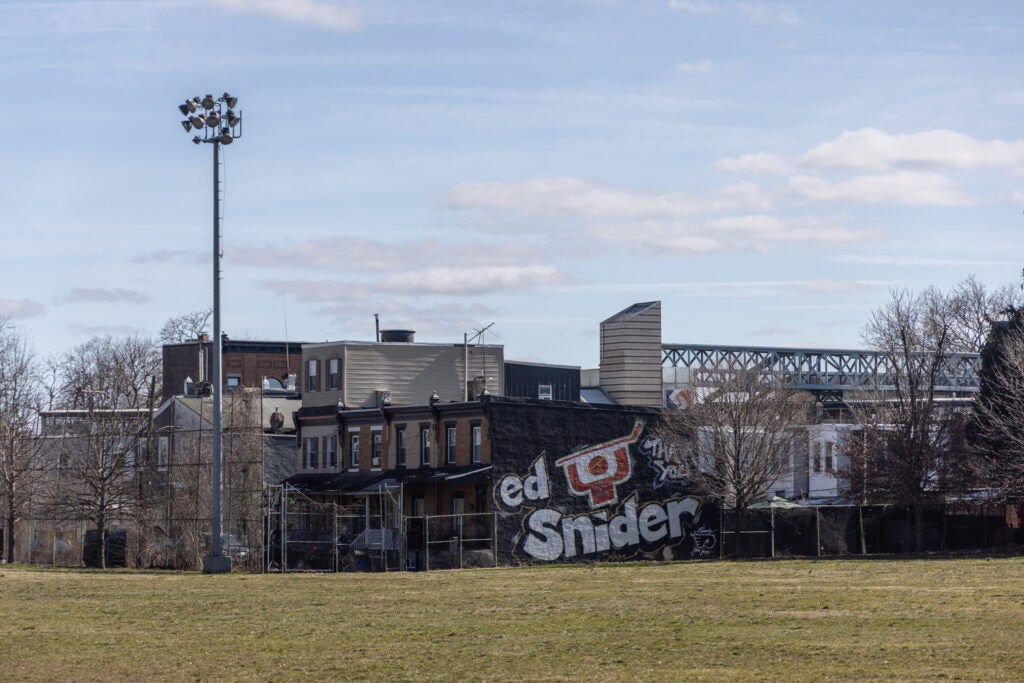
Now, community leaders are focusing efforts toward creating initiatives that respond to the neighborhood’s ongoing housing crisis.
At a press conference held at New Kensington Community Development Corporation (NKCDC) Wednesday morning, the Kensington Planning Process announced plans to use $3.5 million of the settlement funds toward housing stability assistance.
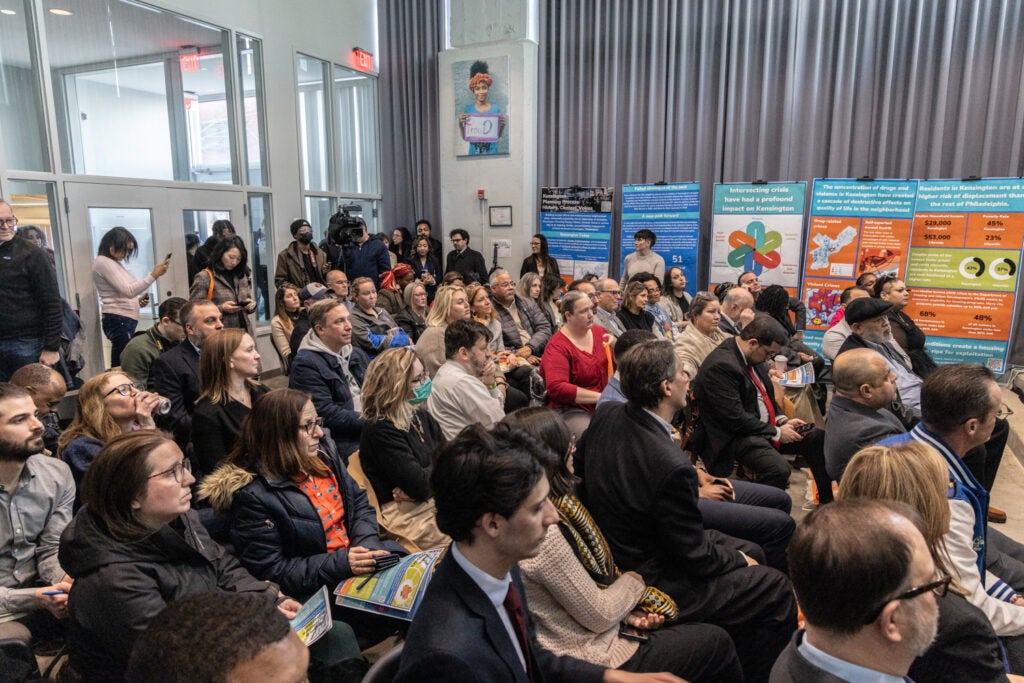
Further details include a $2 million home repair program spearheaded by the nonprofit organization Impact Services, and a $1.5 million program for eviction and foreclosure prevention, led by New Kensington Community Development Corporation.
With settlement funds available, eligible residents could receive up to $5,000 in home repair assistance, $5,000 for foreclosure prevention and $3,500 in eviction support.
“Several partners have spent the past couple of years really trying to ensure that all residents and stakeholders had the opportunity to participate in dialogue that focuses on identifying priorities and on co-creating solutions,” said NKCDC executive director Bill McKinney.
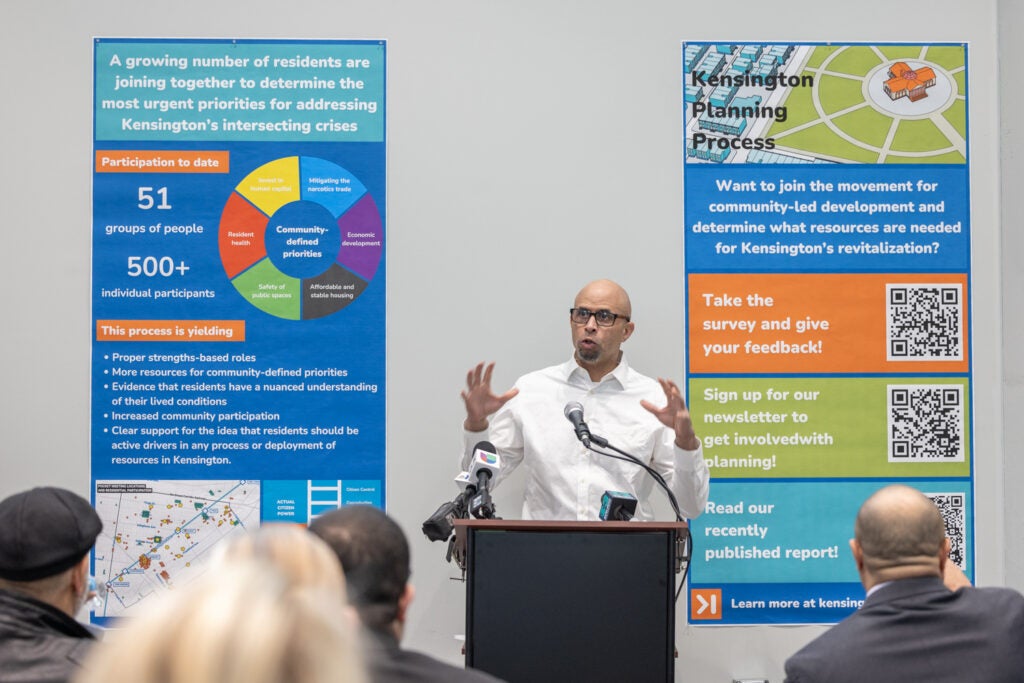
At Wednesday’s meeting, McKinney mentioned a “collaborative” and “community-driven” participatory process that involved close to 600 Kensington residents who explained their vision and solutions for the neighborhood.
Of the Kensington residents involved in these discussions, most agreed that “housing insecurity” was a top priority. Other concerns included mitigating the illicit drug trade, bolstering economic development and improving resident health.
“What we heard back very quickly from folks was that they understood the complexity. Our residents understand the issues that we’re facing,” he said.
Several factors contribute to the neighborhood’s 45% poverty rate — almost double Philadelphia’s total average — community leaders argue. Contributing factors include rising costs for food and utilities, rents and the ongoing opioid epidemic.
But key to solving these safety and quality-of-life issues is the support and leadership of residents in Kensington, said Noelle Foizen, director of the city of Philadelphia’s Overdose Response Unit.
“Specific detailed decisions around what the funding should be used for should lie in the hands of those who know best,” she said. “Those of you that live and work in this community, you are the folks who are intimately aware of this community’s needs and a testament to the importance of community-led processes.”
Philadelphia Councilmember Quetcy Lozada was also in attendance for the Kensington Planning Process announcement.
She gave her support to these upcoming projects and praised residents for speaking out about what they think is best for the community.
“I think that programs like this should be used as an example of how we as a government should strategize and should create policy around what is in the best interest of neighborhoods,” she said.
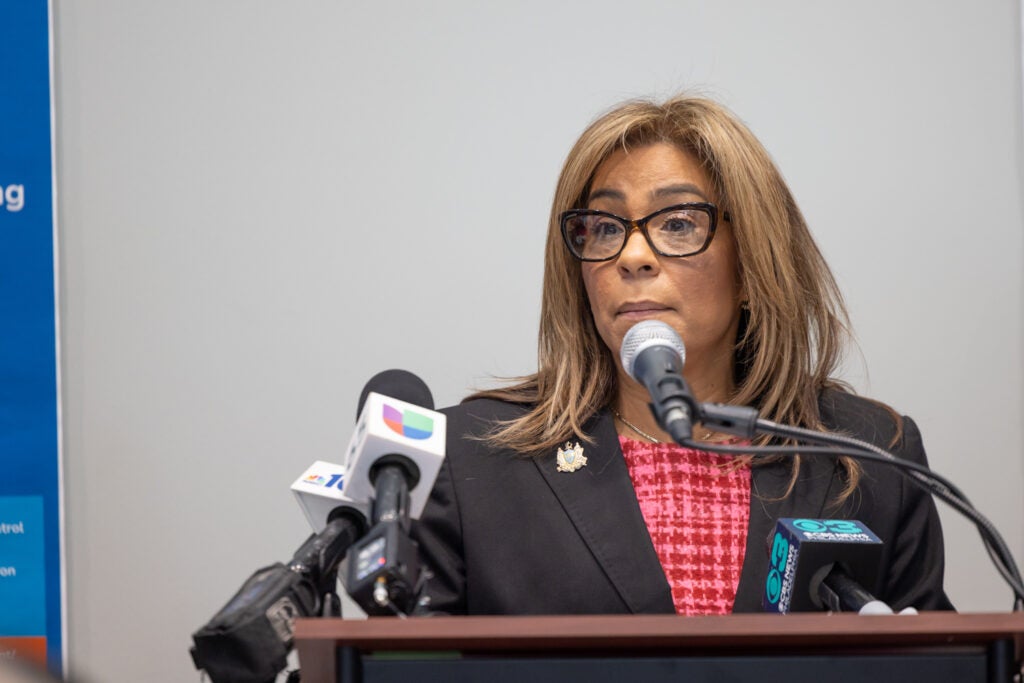
A number of philanthropic partners are also contributing to the community’s comprehensive and trauma-informed strategies to reinvest into the neighborhood. They are the Neubauer Family Foundation, Green Family Foundation, The Pew Charitable Trusts, Spring Point Partners, the Regional Foundation and the William Penn Foundation.
Disclosure: The William Penn Foundation is among WHYY’s financial supporters.
Support for WHYY’s coverage of health equity issues comes from the Commonwealth Fund.

Get daily updates from WHYY News!
WHYY is your source for fact-based, in-depth journalism and information. As a nonprofit organization, we rely on financial support from readers like you. Please give today.



